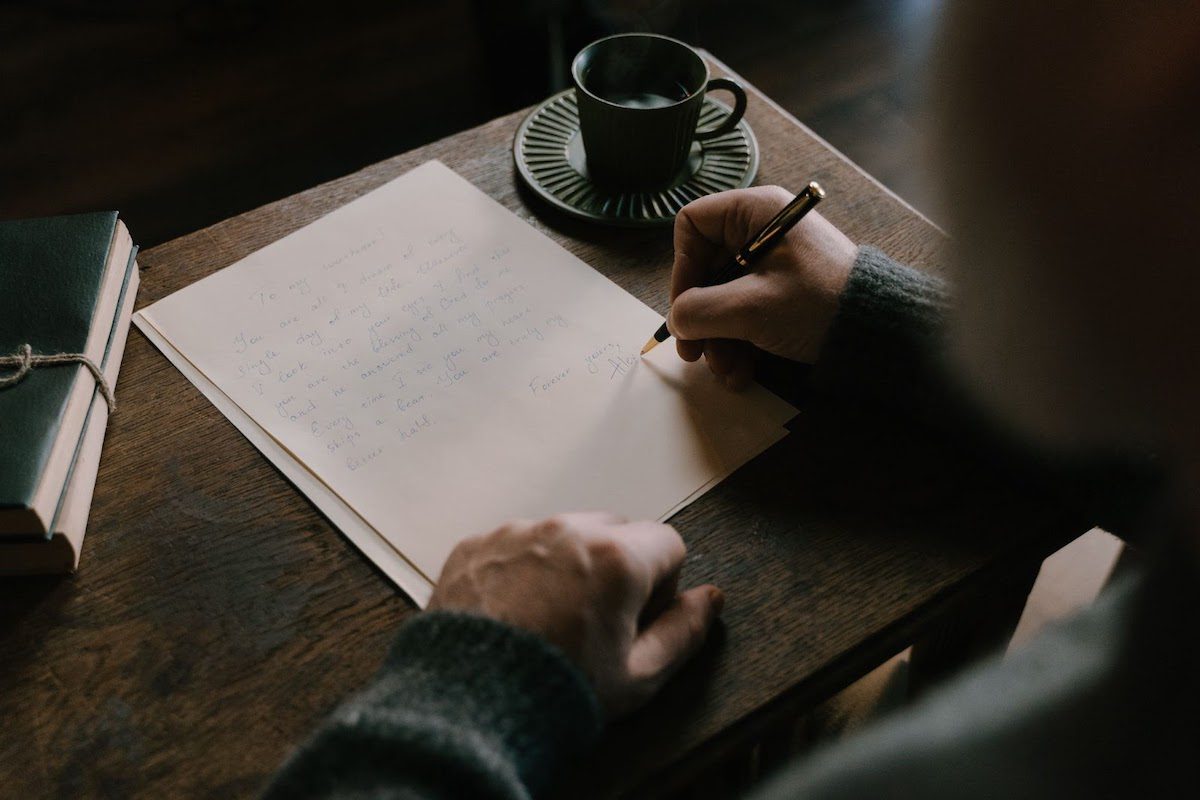 a desk How To Write A Formal Letter" width="1200" height="800" />
a desk How To Write A Formal Letter" width="1200" height="800" />Learning how to write a formal letter is essential when establishing a sense of professionalism in the workspace. Whether you’re communicating with your boss, employees, or someone outside of your business, a business letter acts as a representative of the organization. The way you present yourself in your letter sets the tone for your business.
Using a professional tone informs readers that you are serious about your work and possess expert knowledge on the subject you are bringing forward. This article looks at formal letter examples and formal letter formats, which will help you become an expert in professional communication.
Find your bootcamp match Select Your Interest Your experience Time to start GET MATCHEDBy continuing you agree to our Terms of Service and Privacy Policy, and you consent to receive offers and opportunities from Career Karma by telephone, text message, and email.
By continuing you agree to our Terms of Service and Privacy Policy, and you consent to receive offers and opportunities from Career Karma by telephone, text message, and email.
A formal letter is a document written in a professional tone that follows a specific format, addressed to authorities, coworkers, dignitaries, and seniors. You do not address these types of letters to friends, family, or personal acquaintances. They are the opposite of an informal letter, which uses more conventional language.
Formal letter examples include business letters, appointment letters, resignation letters, cover letters, and recommendation letters. You can send formal emails, but a paper letter gives more detailed personal attention.
You want to draw the reader in from the very first sentence, so it’s vital to know how to address formal letters. On the same note, you want to end your letter strongly so the reader is left with a good impression of you as a professional. Below are key points to note when beginning and ending your formal letter.
The majority of formal letters begin with the word “Dear” before the name of the recipient. You can either use the person’s first and last name or their title and surname. If you do not know the person’s name, you must address the letter using “Dear Sir or Madam”.
Regardless of how you begin your letter, it must be accompanied by a comma. Your first sentence, which should start on a new line after the title, should directly indicate why you’re writing the letter.
How you end your letter will be determined by the message you want to send. Examples of letter closings include “Yours sincerely”, “Yours faithfully”, “Respectively”, and “Warm regards”. Remember that you must use a comma to end your message.
 a desk How To Write A Formal Letter" width="1200" height="800" />
a desk How To Write A Formal Letter" width="1200" height="800" />
You must write a formal letter with a professional approach. Take into account your target audience and be wary of the words you use. Write in the proper format, avoid using slang and contractions, and maintain a courteous approach.
It is important to state the objective of your correspondence clearly in the introduction of your letter. Ensure that it is brief and straightforward. Knowing how to communicate is a professional skill everyone should know in the workspace.
Proofread your letter and review your work thoroughly. This letter could be an essential part of transitioning into the next stage of your career. Give yourself at least four weeks to write, review, and check for spelling and grammar mistakes before sending it in. A letter that is free of errors will appear more professional.
When writing this type of letter, make sure to include all of the required information. This includes the address of the recipient, your name, and your signature.
When writing a handwritten formal letter, choose high-quality paper and a matching envelope. Ensure that you spell the name of the recipient correctly and that the address is correct. Remember to sign the letter.
Writing any kind of formal letter is easy once you have mastered the techniques of sharing clear and concise messages. Below are formal letter examples that will help you communicate effectively. The first is a common example of a formal letter delivered by email, and the second is a common example of a formal handwritten letter.
Lynn Thomas
123 Main Street
February 12, 2022
123 Business Road
Business City, NY
I am writing in regards to the human resources consultant position advertised on CareerKarma.com. I am very interested in this position and would appreciate being considered a candidate for it.
I have work experience in human resources departments, providing help to various sectors. I have been employed as a human resources generalist for the past four years. Before this position, I worked as a human resources assistant for two years.
I have a strong desire to help people, and I excel in looking for answers to common HR issues, which I believe would be a valuable asset to your organization. I possess excellent communication skills, which are critical for HR success. I have a degree in human resources from Arizona State University.
"Career Karma entered my life when I needed it most and quickly helped me match with a bootcamp. Two months after graduating, I found my dream job that aligned with my values and goals in life!"
Venus, Software Engineer at Rockbot
Find Your Bootcamp Match
I promote employee retention and improve business cultures by establishing training and education programs. Making sure my employees have access to the information they need to succeed and comply with legal obligations is of utmost importance to me.
I appreciate your taking the time to read this message, and I am looking forward to hearing from you about the next steps in the recruiting process. Please contact me if you have any questions or require extra information.